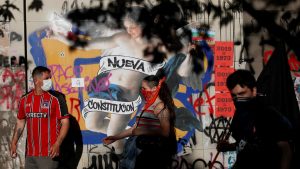By: Ryan Tahiri, 2L
On October 25, 2020, Chile held a referendum to decide whether to retain its current constitution or draft a new charter. The current constitution was drawn up in 1980 under the rule of General Augusto Pinochet, the leader of Chile’s former military dictatorship. Chileans were strongly in support of replacing the Pinochet-era version, with more than 78% of voters choosing to draft a new constitution. Following the result of the national referendum, voters will elect a 155-member constitutional convention tasked with drafting the new charter over a two-year period.
Opponents of the current charter point to its dictatorial roots, along with its restriction on social reform, as justifications for a new constitution. The new charter is expected to expand Chileans’ social rights, particularly those of the country’s largest indigenous group. Despite the Mapuche’s considerable population and influence, the current constitution neither recognizes nor protects their rights. The referendum provides this group an opportunity to secure fundamental protections, including social and environmental rights.
Meanwhile, supporters of the current constitution cite its role as a catalyst for economic growth and strong property protections. The primary concern surrounding a new constitution, which provides for increased social protections, is that the government will likely be burdened with significant financial obligations moving forward. Moreover, Chile has been hit particularly hard by the coronavirus pandemic, facing a stalled economy, widespread food shortages, and an overwhelmed health care system. Critics of a new charter maintain that the drafting of a new constitution would only serve to exacerbate the already bleak economic situation in Chile.
Despite opposition, President Sebastián Piñera, who has traditionally rejected the idea of a new constitution, saw the referendum as an opportunity to unite a deeply polarized country suffering simultaneous economic and health crises. Piñera justified the decision to hold a referendum to his divided coalition by asserting that the new charter could expand social rights while also preserving market protections. The difference in opinion was reflected throughout the nation, with peaceful demonstrations quickly morphing into violent protests. However, Chileans have made their voice heard by voting to change the current constitution, signaling their readiness to close a dark chapter in the nation’s history.





